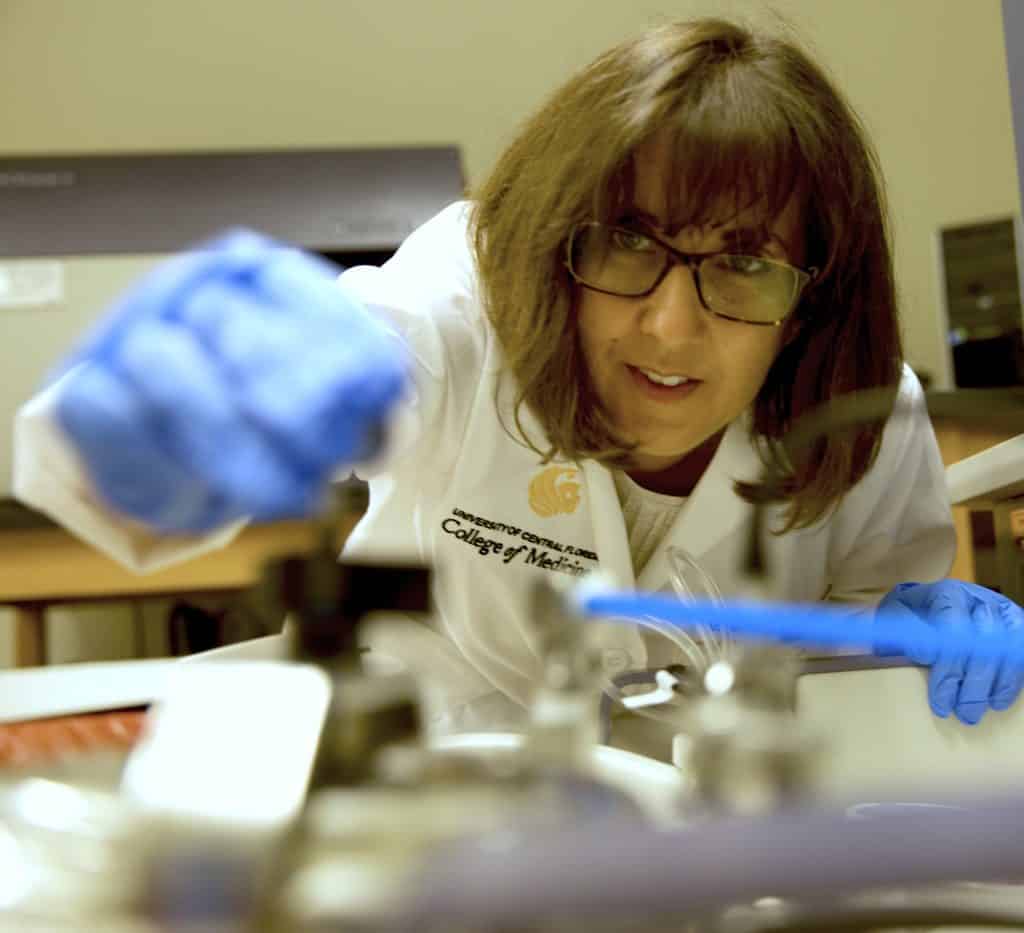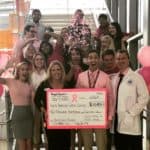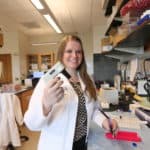 If you love college football, Dec. 16’s AutoNation Cure Bowl in Orlando gives you a chance to enjoy your favorite sport – and help beat breast cancer at the same time.
If you love college football, Dec. 16’s AutoNation Cure Bowl in Orlando gives you a chance to enjoy your favorite sport – and help beat breast cancer at the same time.
The Cure Bowl is the only NCAA football bowl game with a charity in its name, and proceeds support the Breast Cancer Research Foundation (BCRF), the largest private funder of breast cancer research worldwide. Some of that funded research is happening in our own Lake Nona community at the UCF College of Medicine.
Dr. Annette Khaled leads our Cancer Research Division and has received about $900,000 from the Cure Bowl to support her research. Nicknamed the “Cancer Assassin,” Dr. Khaled has discovered a way to kill spreading breast cancer cells while leaving normal cells intact.
Cancer kills more than 1,500 people a day in this country, and metastatic or spreading cancer cells are the leading cause of death for most cancer patients. That’s because the cancer spreads from the original tumor to the brain, lungs and bones.
In 2012, Dr. Khaled discovered the peptide CT20, which kills fleeing cells by disrupting the folding mechanism inside cancer cells mediated by a chaperonin. If the inner workings of the cell can’t fold into 3D units, the cell dies. She then teamed up with Dr. J. Manuel Perez, a former UCF researcher who specializes in chemistry and nanotechnology, who developed nanoparticles to transport the peptide specifically to metastatic cancer cells. Dr. Khaled’s new technology has generated a licensing agreement that will accelerate the therapy’s path to clinical trials, perhaps as early as two or three years.
“We have never been closer to curing cancer than we are now,” Dr. Khaled said. “It’s a team effort, and my lab is thrilled to contribute to the new discoveries that will make it possible.”
The College of Medicine’s cancer researchers are dedicated to finding better treatments for this disease. Their approaches are as diverse as their backgrounds. Some are researching the environment that makes cancer cells grow and thrive. One has actually created a cancer tumor’s environment in a test tube. Others are looking at the makeup of cancer cells to understand why some are so resistant to chemotherapy. Others are investigating new molecular treatments, including viruses, that can kill cancer but keep other cells healthy. Such treatments will help patients escape the brutal side effects of current treatments.
These scientists are only limited by funding. So, I hope you’ll consider going to the Cure Bowl. It’s a great two-for-one deal. You get to cheer on college football and support cancer research in your own backyard.
For more information on the AutoNation Cure Bowl, please visit https://curebowl.com/.

